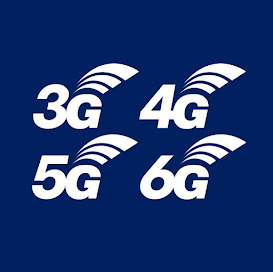
UK national telecommunication company British Telecom (BT) has closed its mobile broadcast branch BT Movio. The delivery platform developed by BT Movio supports the only mobile broadcast TV service in the UK. The service is retailed by UK largest mobile virtual network operator (MVNO) Virgin Mobile. The operator declared that the service will carry on until the beginning of next year. BT has cancelled its contract with GCap Media which provided access to the Digital Audio Broadcast (DAB) spectrum. GCap mentioned that the cancellation will take effect on 9 June 2008. GCap subsidiary Digital One which is in charge of the spectrum is currently seeking other partners to replace BT Movio.
Virgin had released only one handset — the HTC-manufactured "Lobster phone" — which supported the technology, and sales of that device were poor. The Lobster phone was seen by critics as an unattractive handset and, being based on Windows Mobile, it was not ideally suited to the consumer sector.
However, the final straw for BT was the recent backing given by the European Commission to the mobile broadcast technology Digital Video Broadcasting — Handheld (DVB-H). BT Movio was based on the rival Digital Audio Broadcasting — IP (DAB-IP) standard, which reused digital radio spectrum to deliver a handful of TV channels and a range of digital radio stations. DVB-H promises more channels, but spectrum availability for that technology had looked uncertain until it became apparent last week that the European Commission would force member states to adopt the standard.
According to screendigest:
Unicast mobile TV (i.e. distributed through 3G networks) has been relatively successful in the UK with three major operators launching services with more than 25 TV channels on average. According to Screen Digest, they were almost 450,000 mobile TV subscribers at the end of 2006. While unicast mobile TV can offer a wide range of TV content, the infrastructure can only sustain a limited number of users. In order to support mass market adoption mobile broadcast TV networks must be deployed. BT Movio launched the broadcast mobile TV service with Virgin Mobile in September 2006. The service showed poor uptake during the first 3 months with less than 10,000 subscribers. Factors blamed for the poor uptake include a lack of content and poor handset availability. The upcoming UK auction for L-Band spectrum could have given BT Movio the opportunity to increase the capacity of the current platform and improve the channel line-up. However, the BT Movio platform requires IP compatibility from the broadcast network technology. DVB-H, DAB and MBMS support IP encapsulation. T-DMB, the preferred technology for the L-Band spectrum auction, does not support IP. Therefore, BT Movio was stuck with a platform which cannot draw enough attention from mobile operators, handset manufacturers and inevitably mobile subscribers.
The UK operator '3' is keen to big up its own mobile TV and video services in the wake of BT's announcement. 3 UK says its customers have:
- Downloaded more than a million reality TV clips in the last year.
- Downloaded over a million SeeMeTV clips every month, with £100,000 being made by budding directors in the process.
- Last summer watched World Cup TV on their mobiles nearly 4 million times.
Among the live streamed channels 3 offers are BBC1, BBC3 and ITV1, with access starting at 49p a day. Its also allows customers to access TV from their set-top's with a Slingbox app.


No comments:
Post a Comment